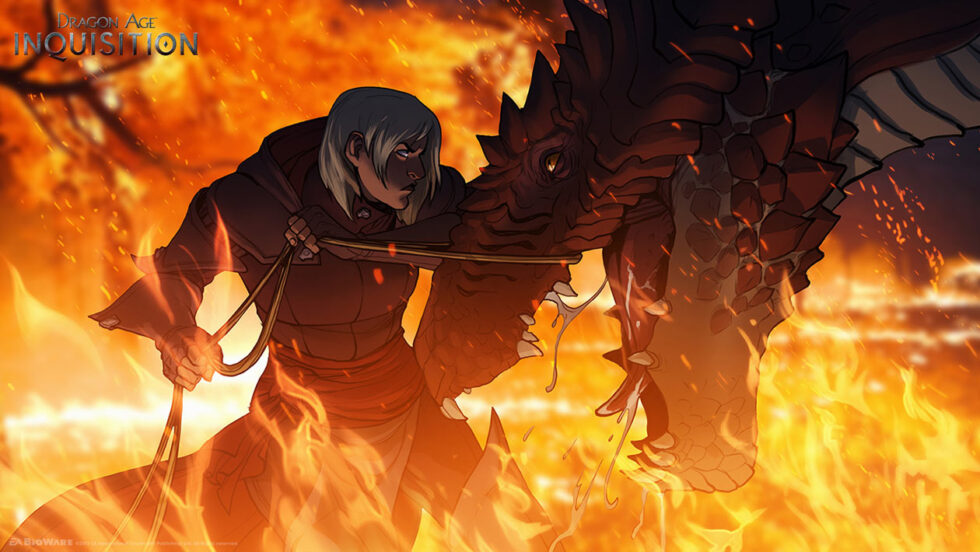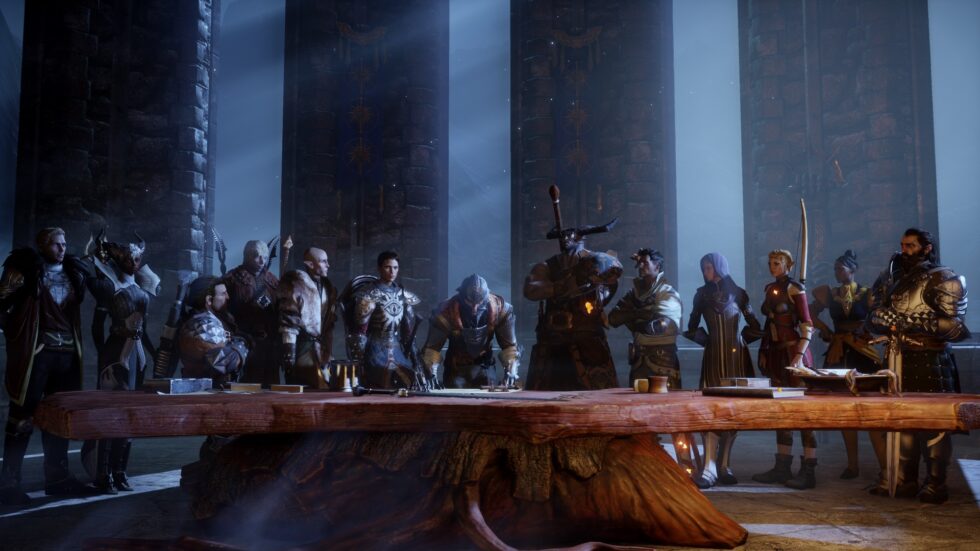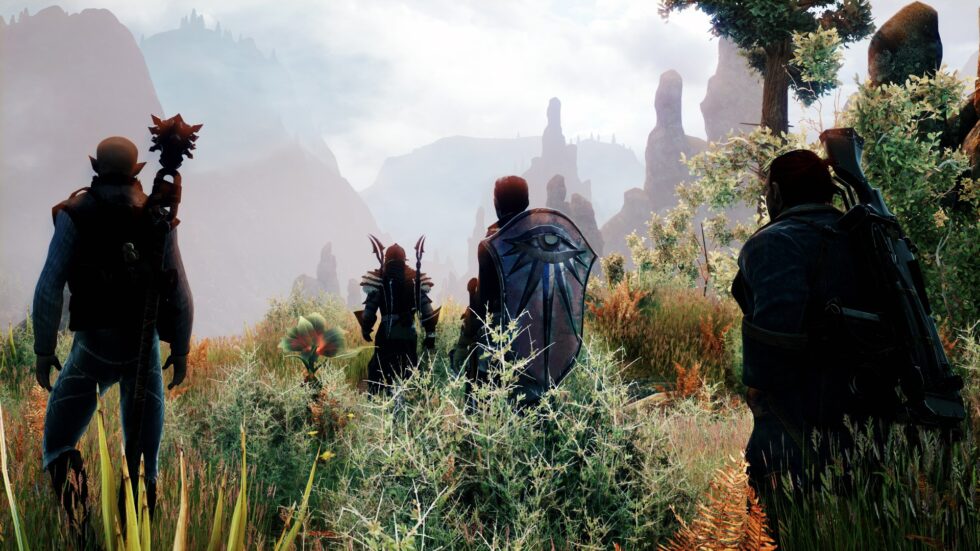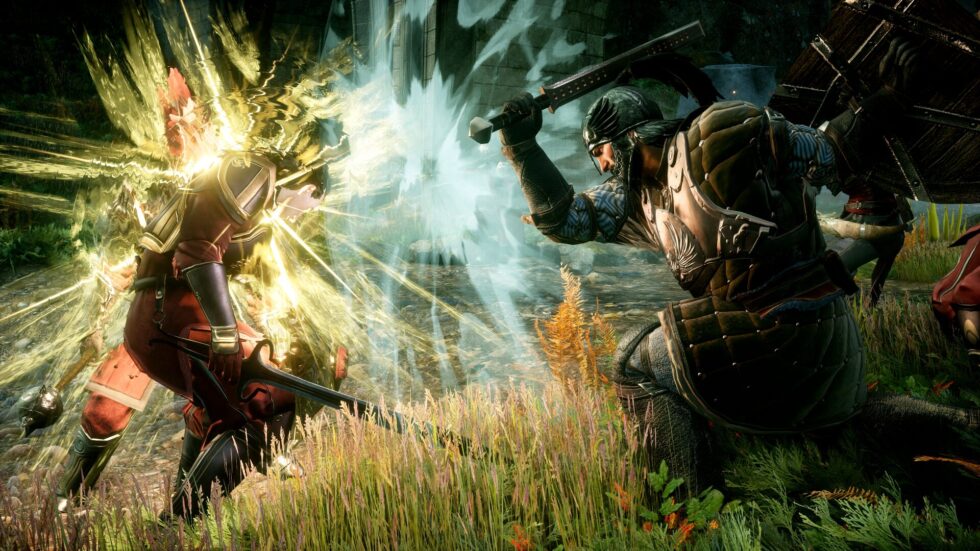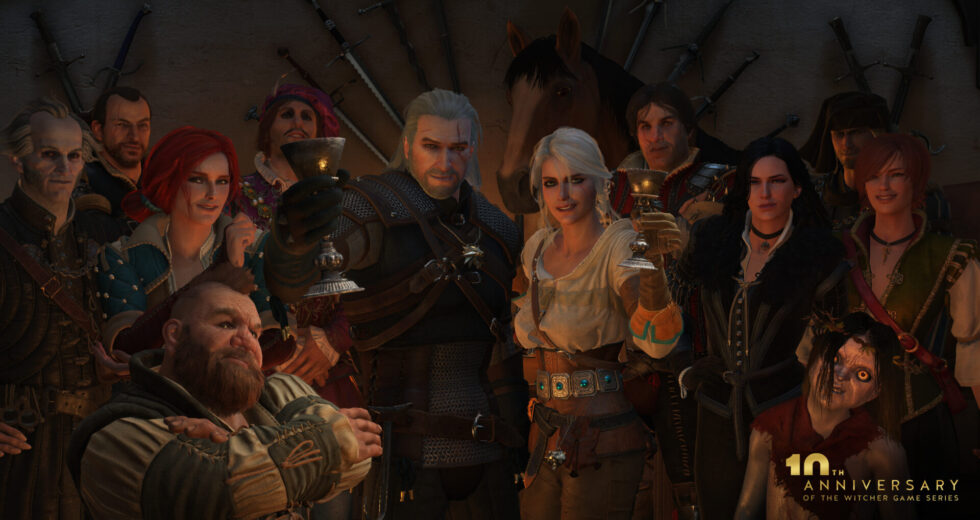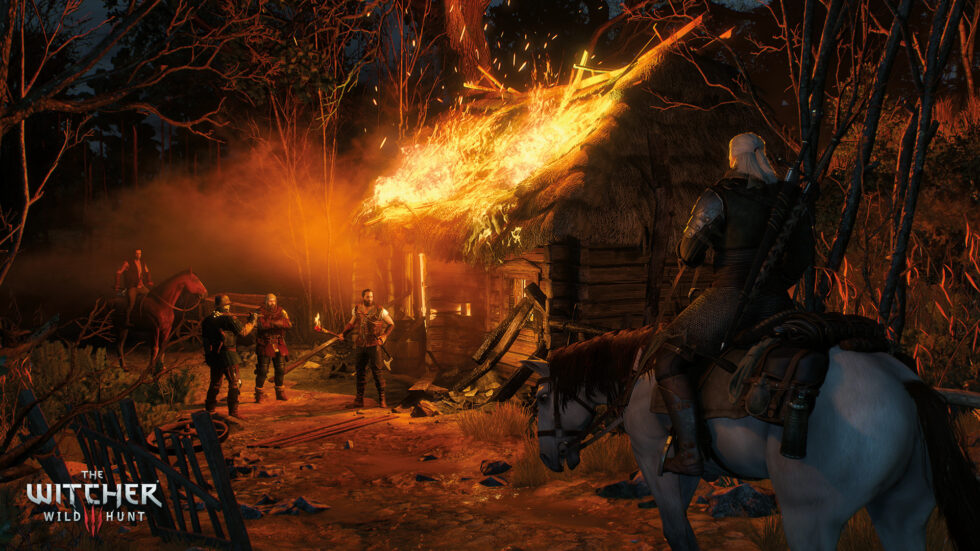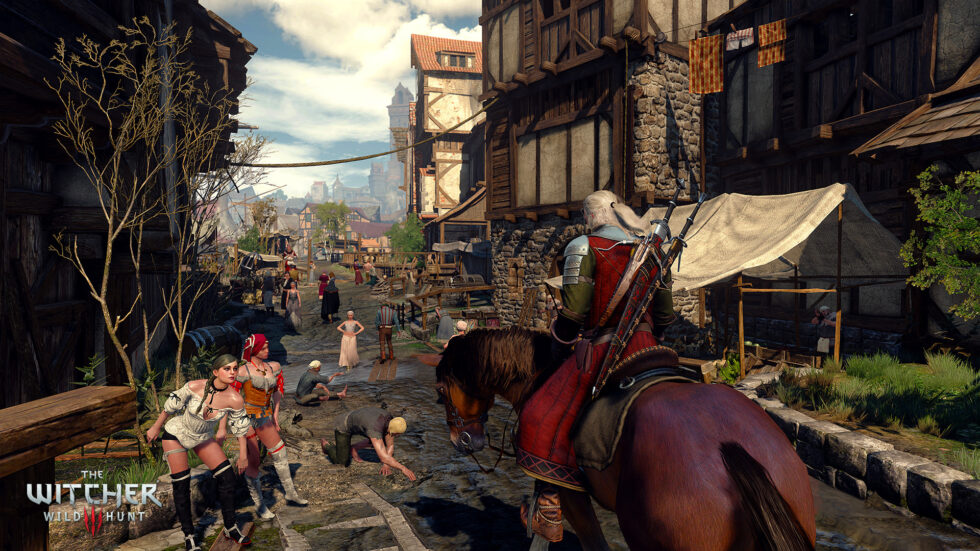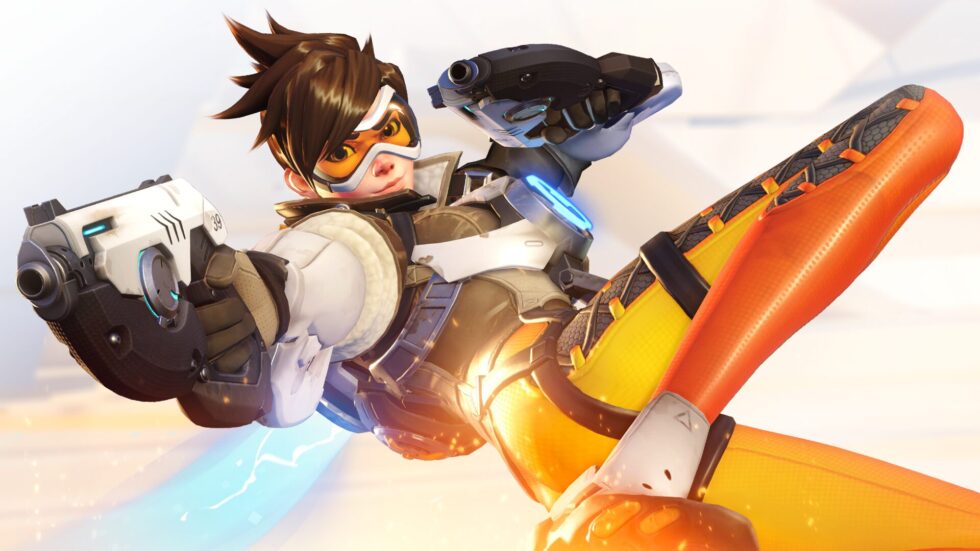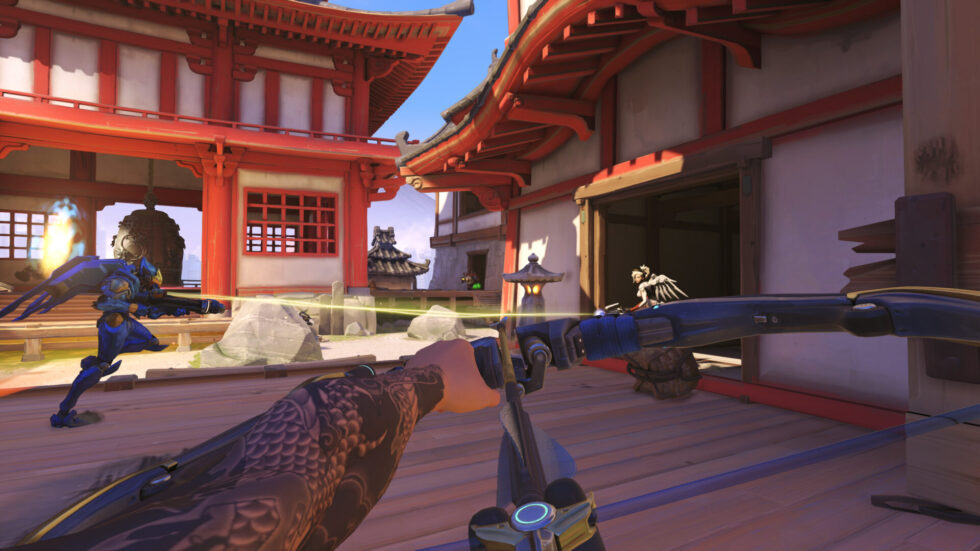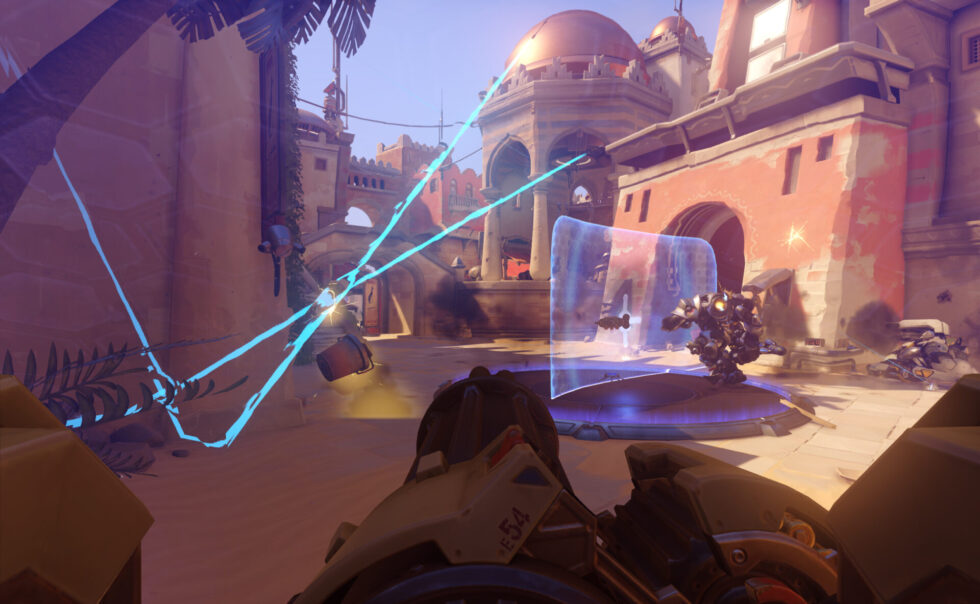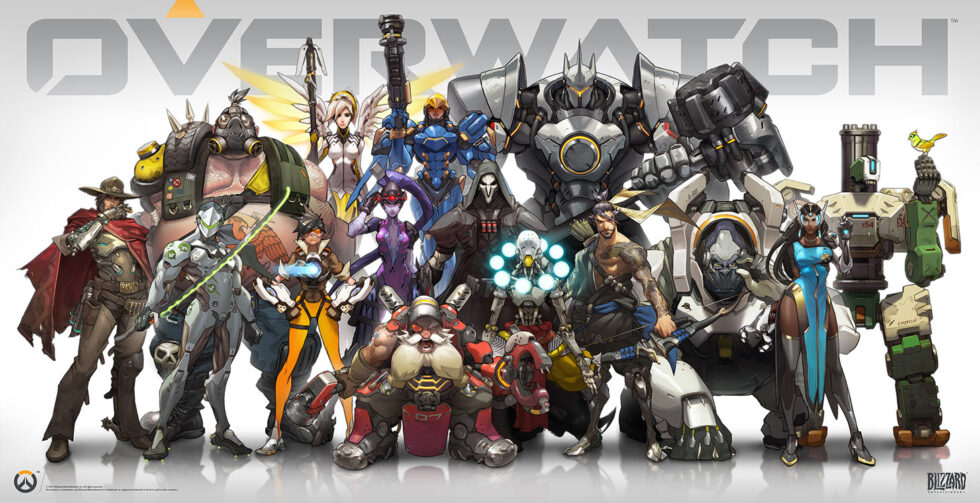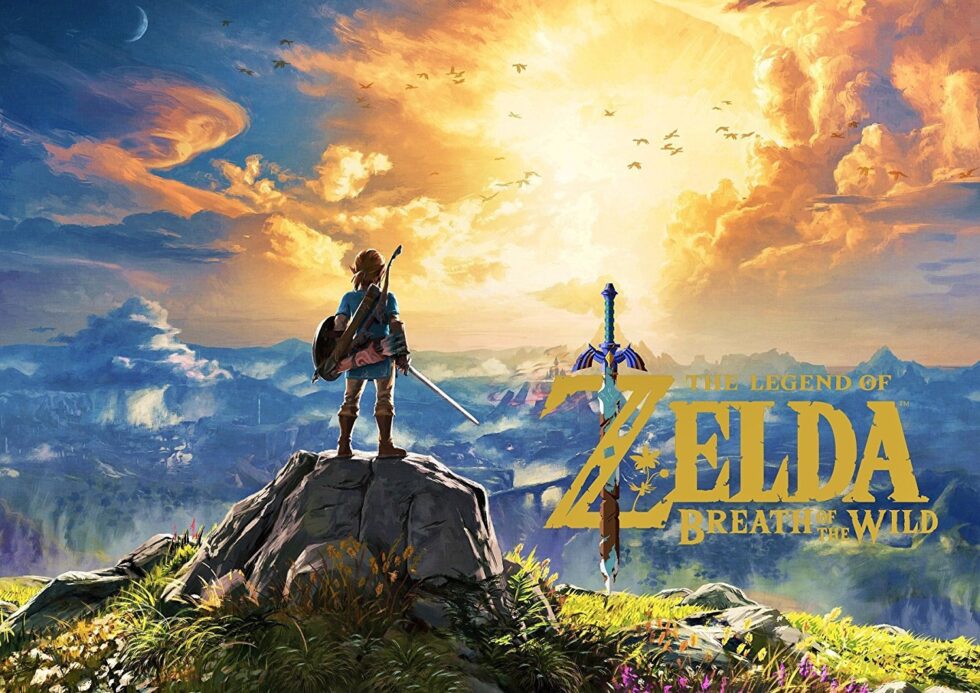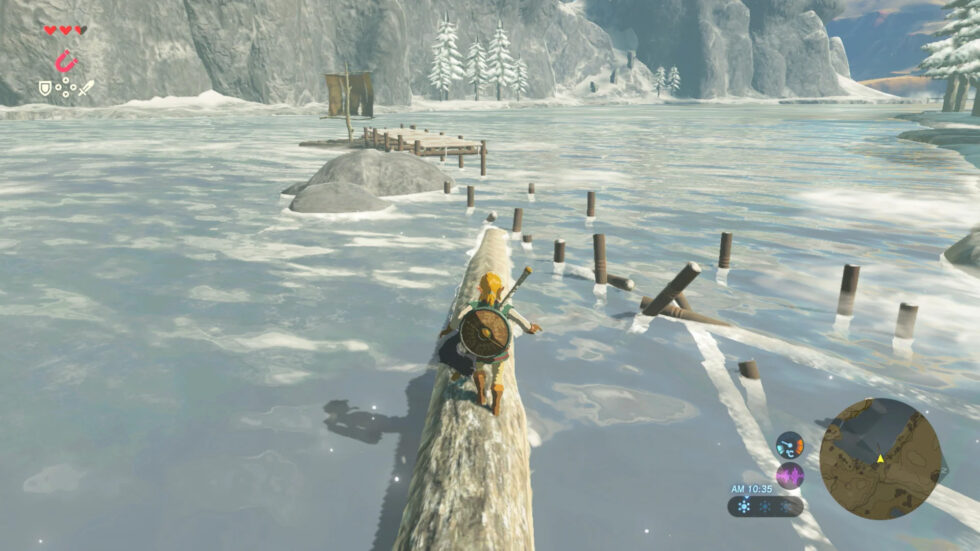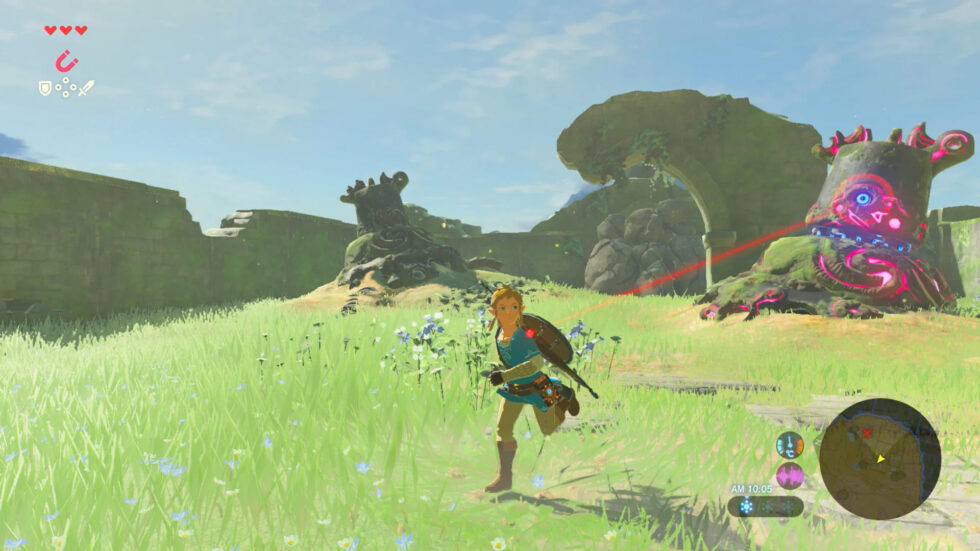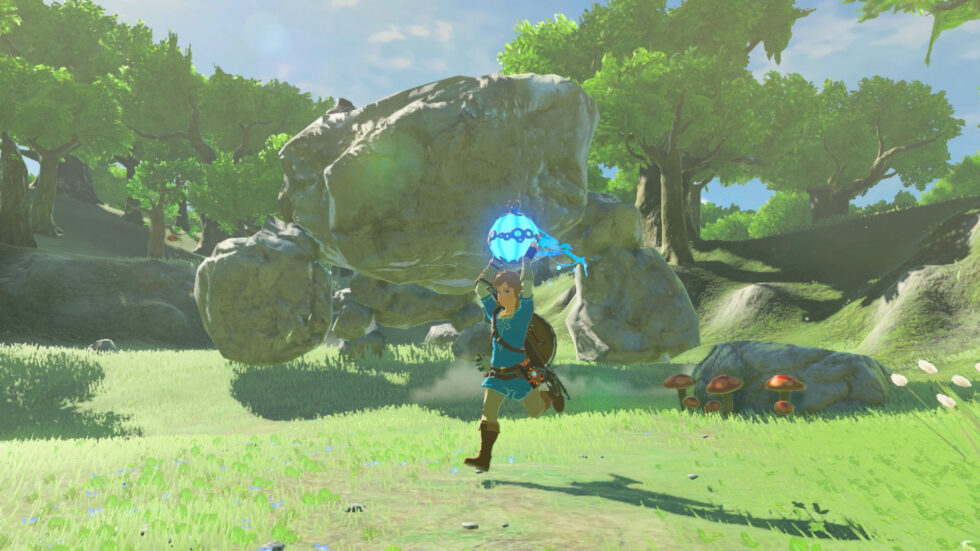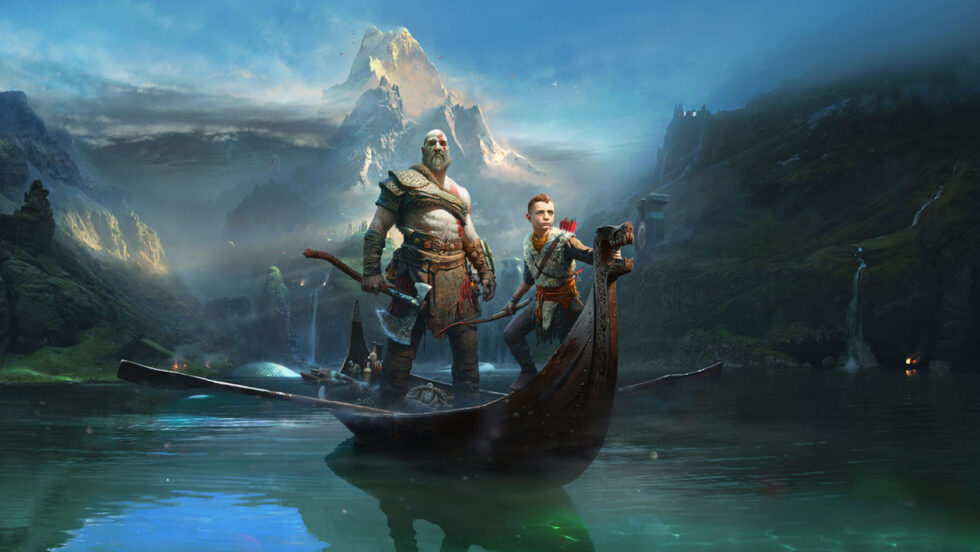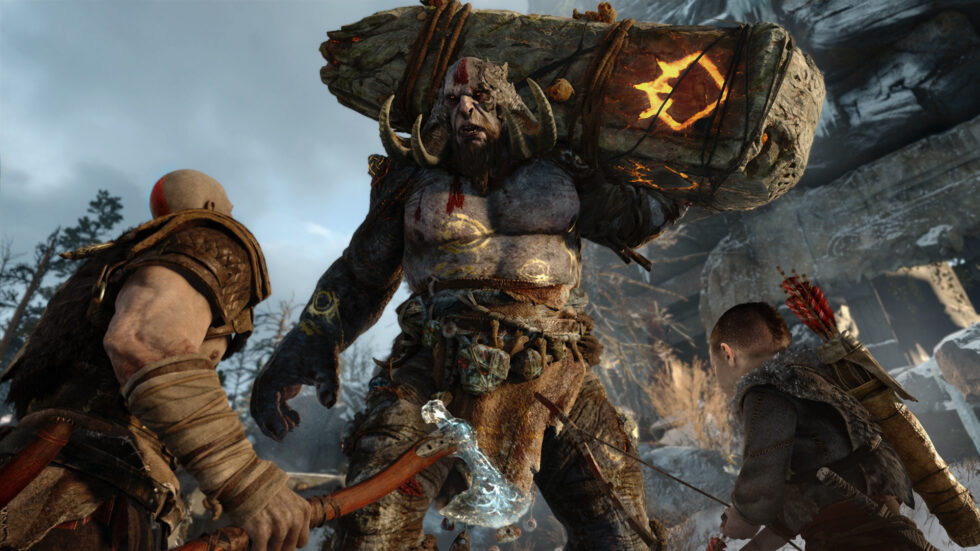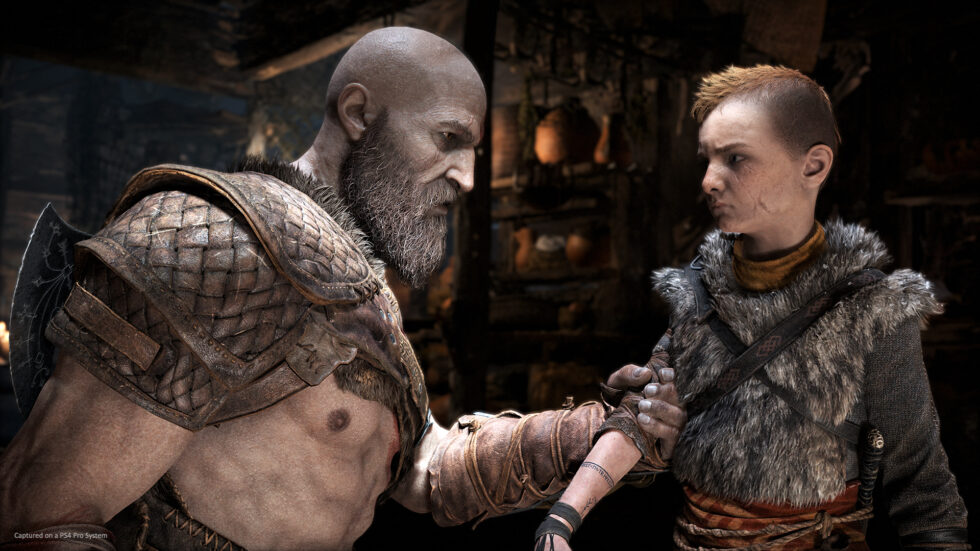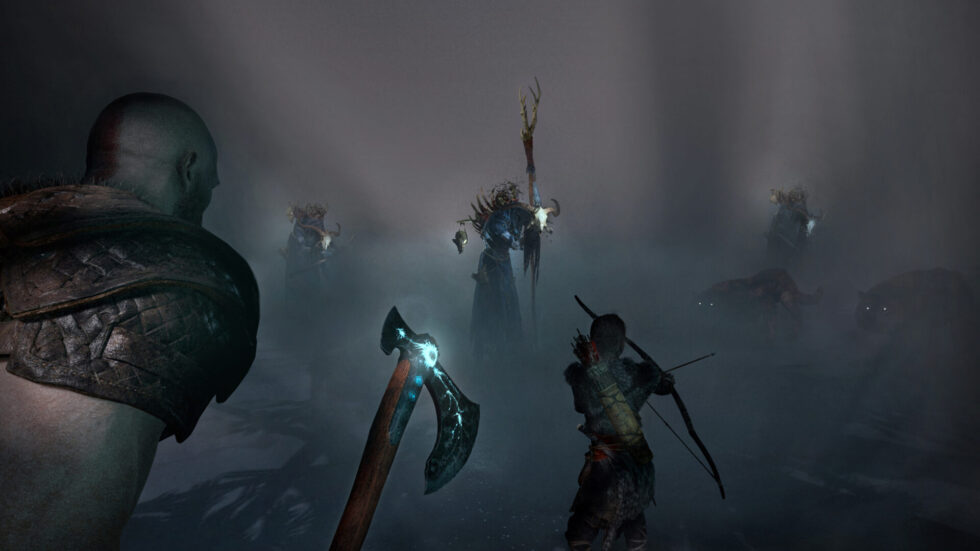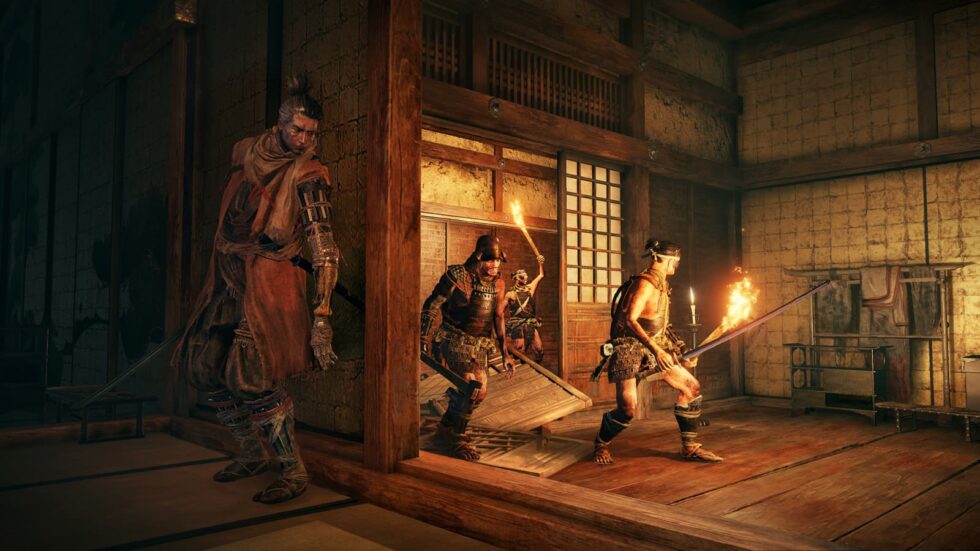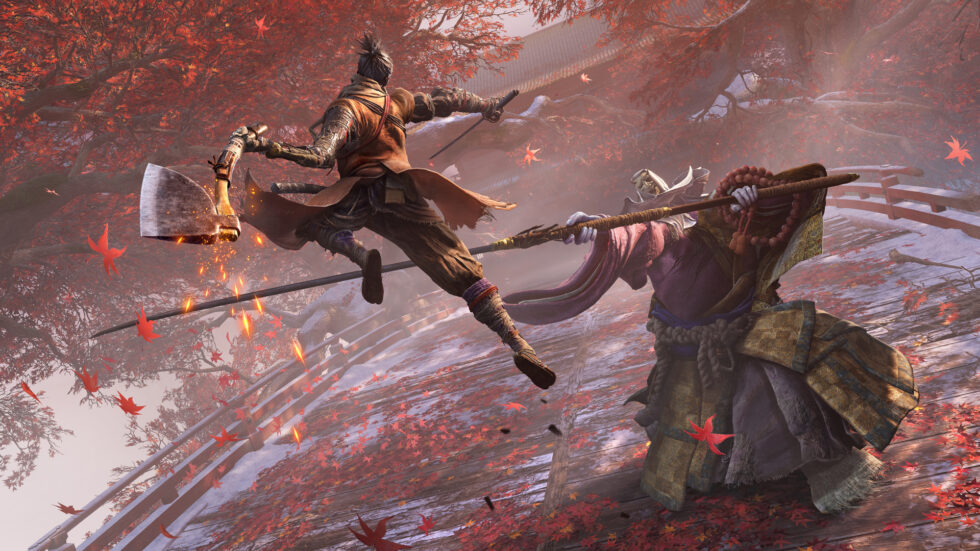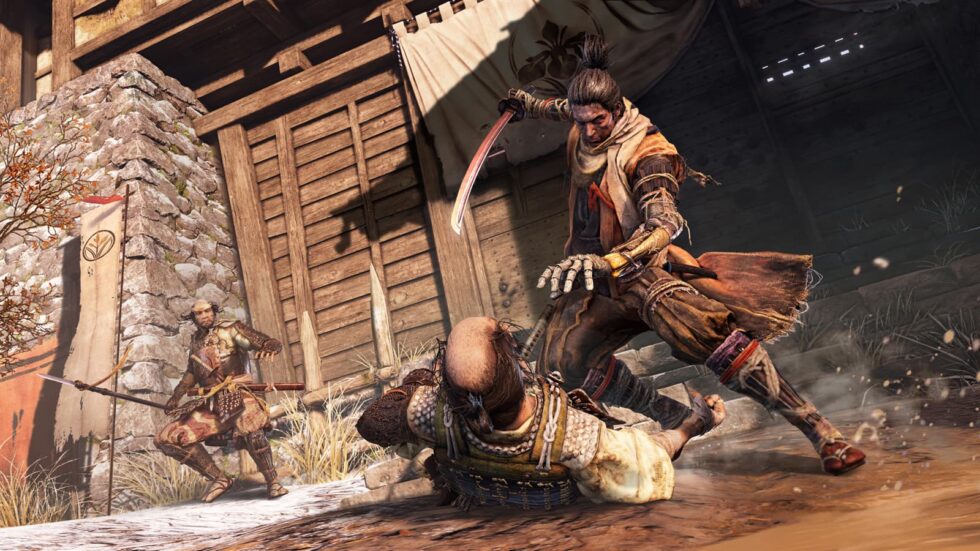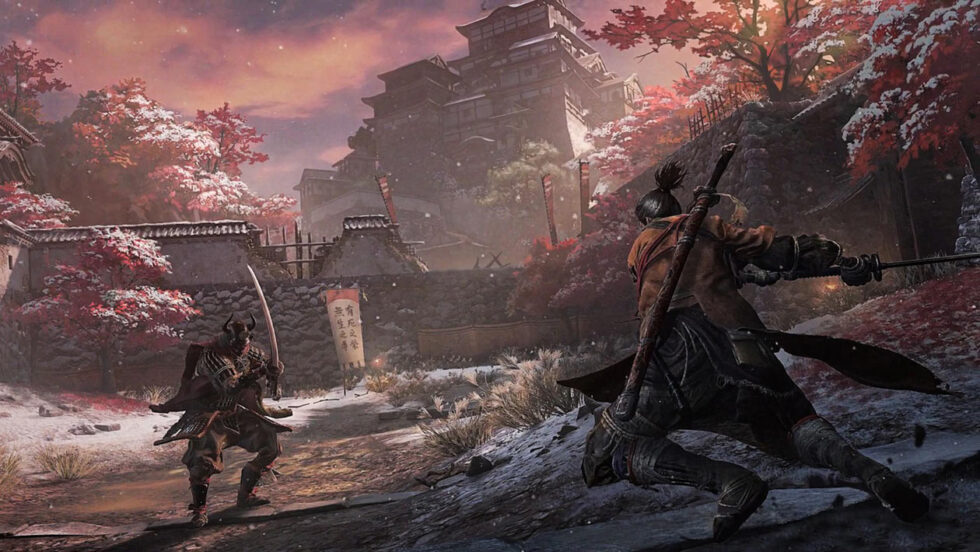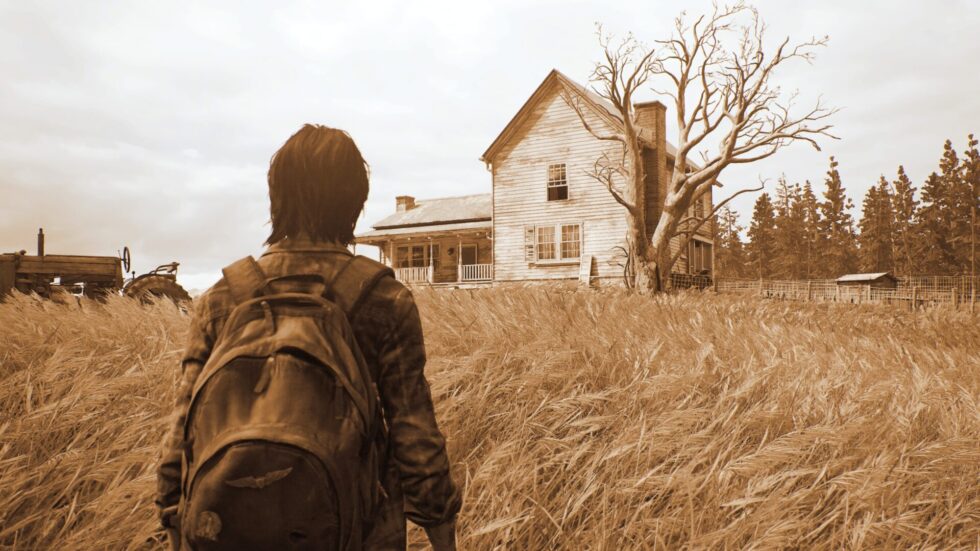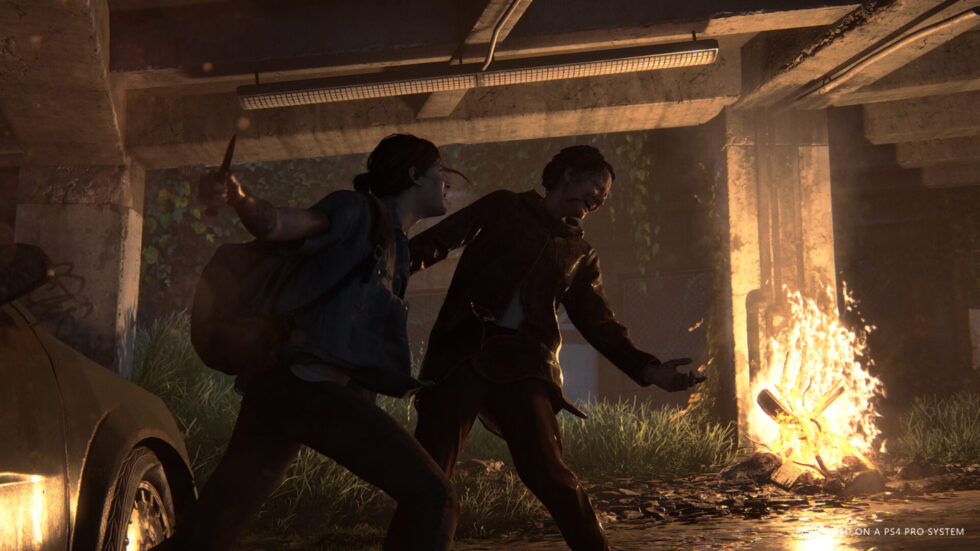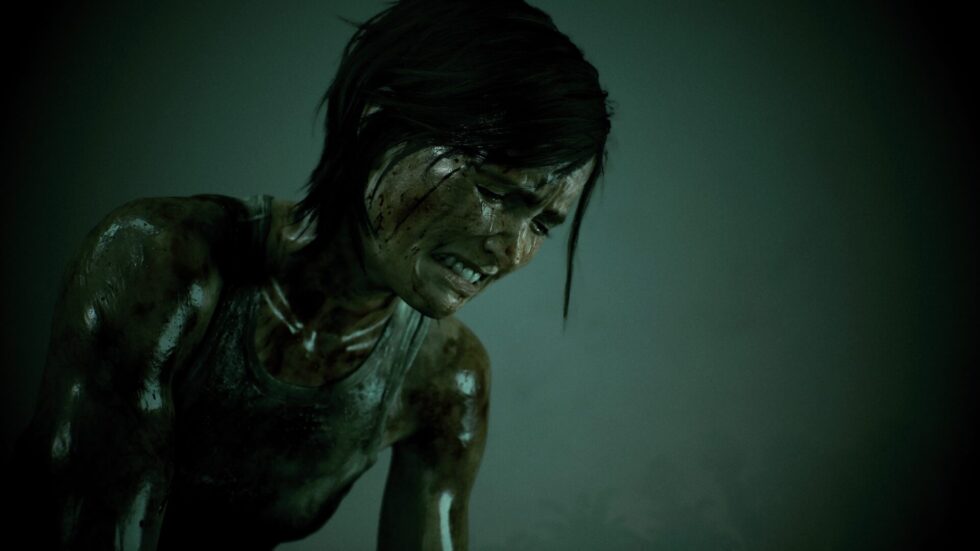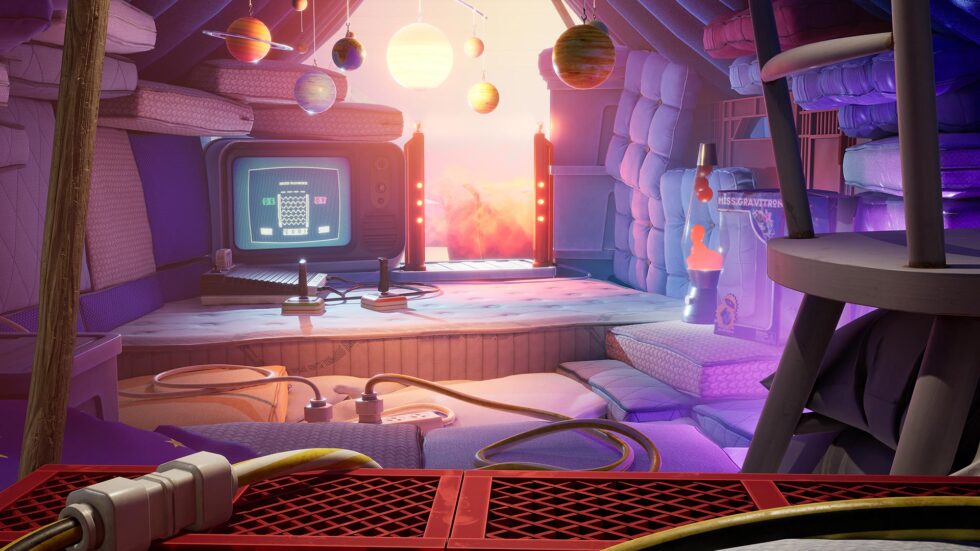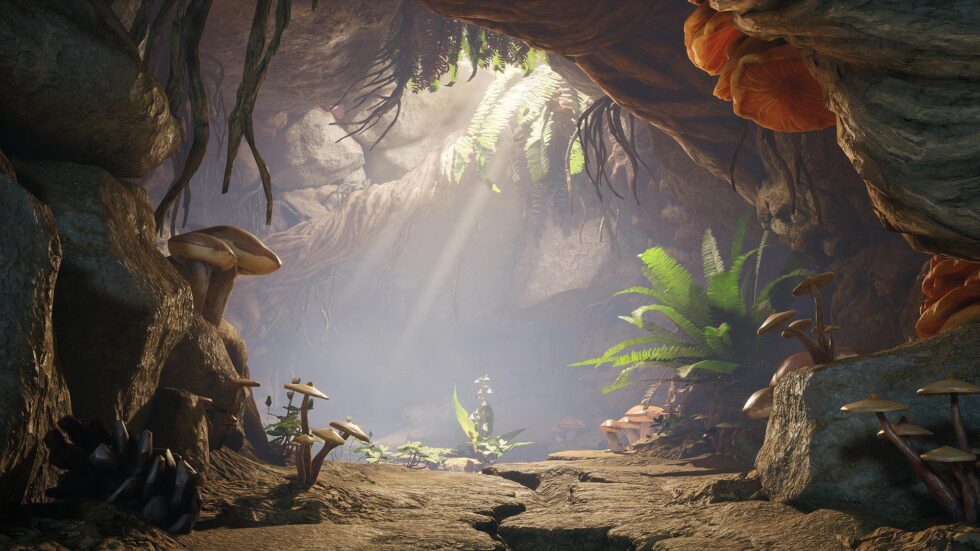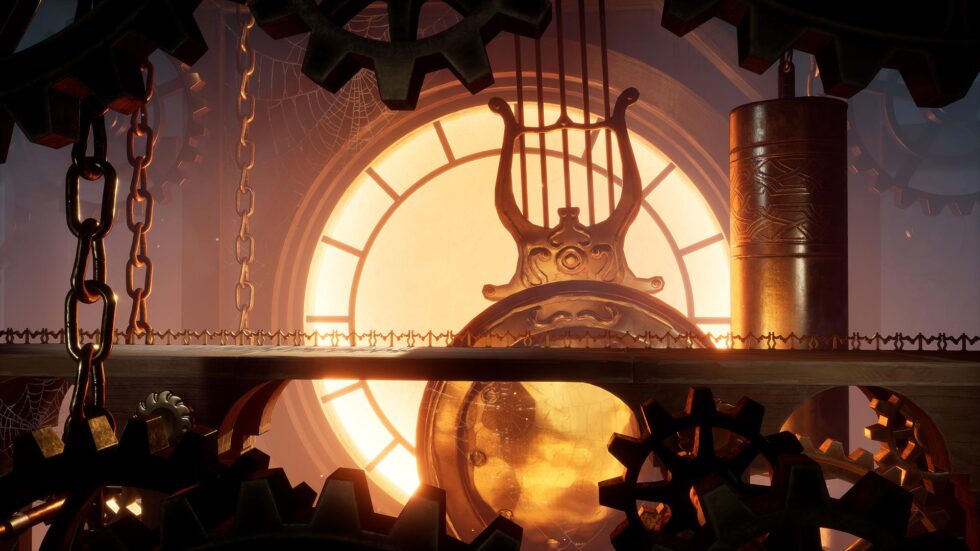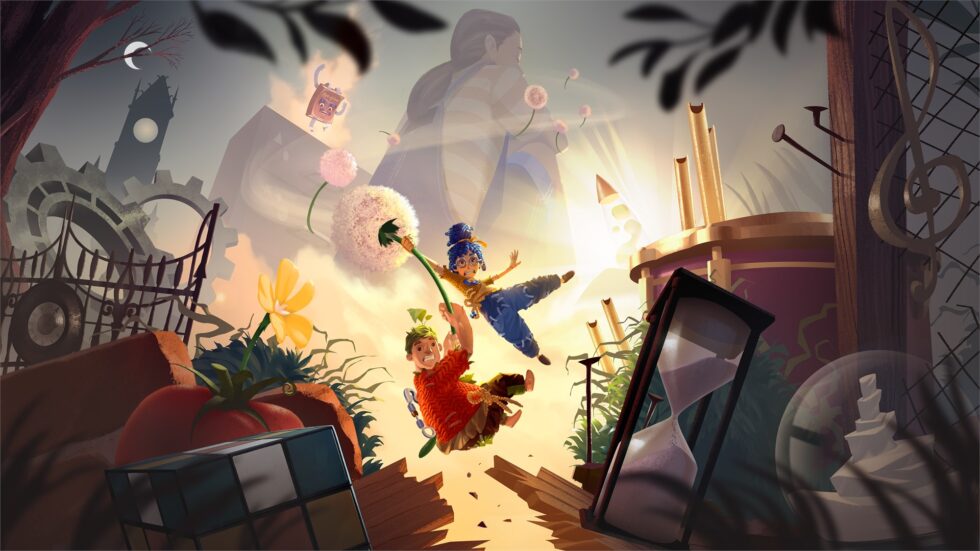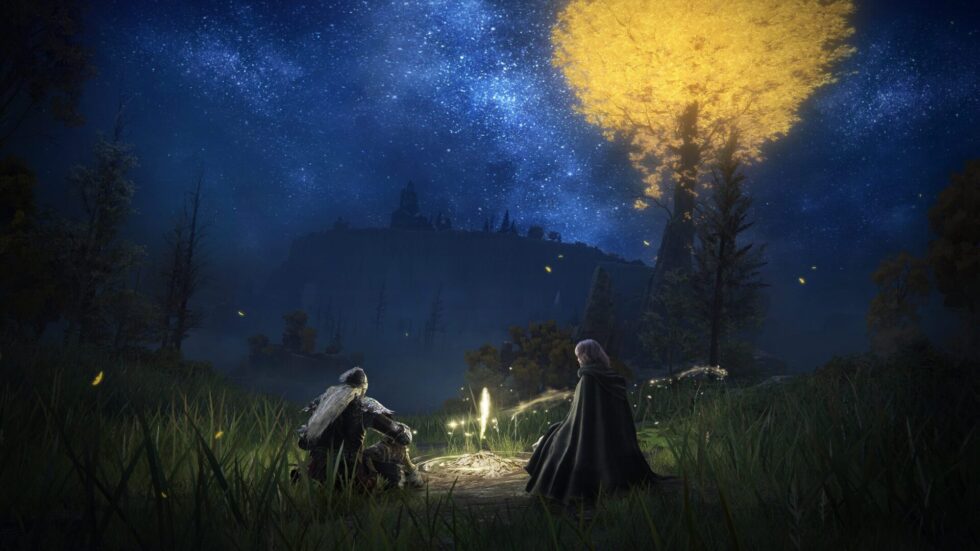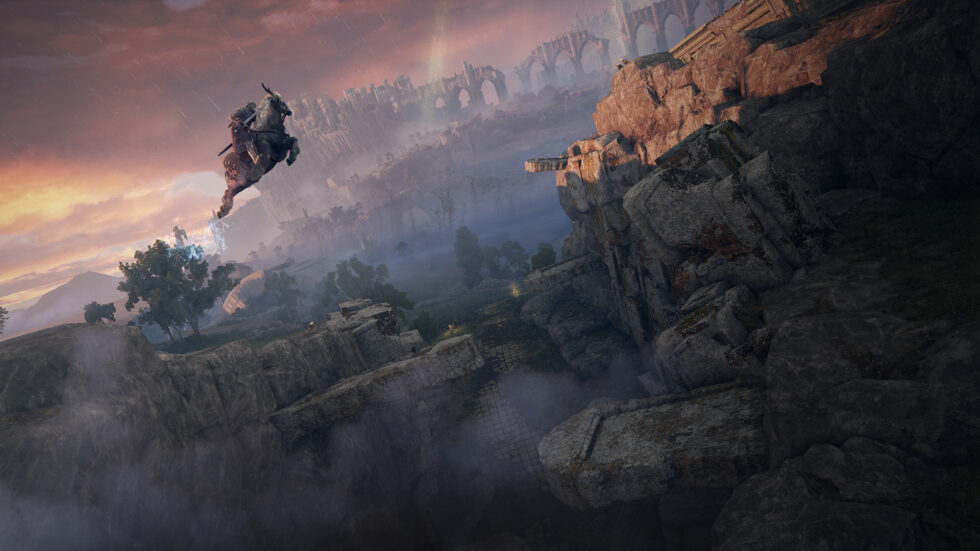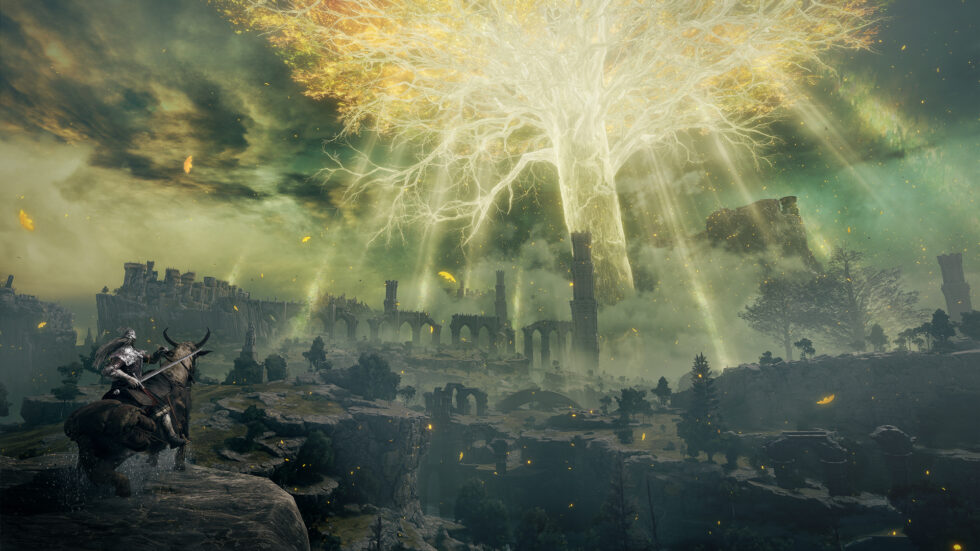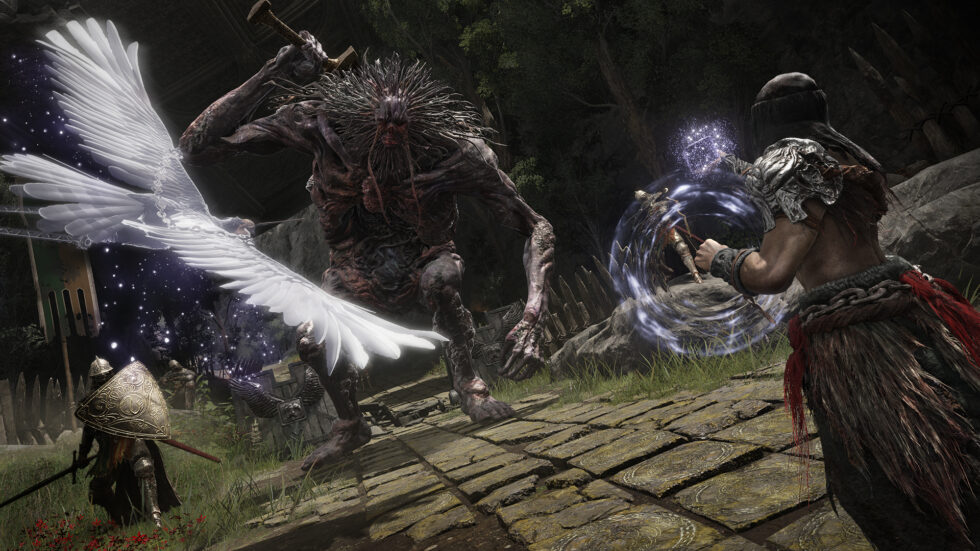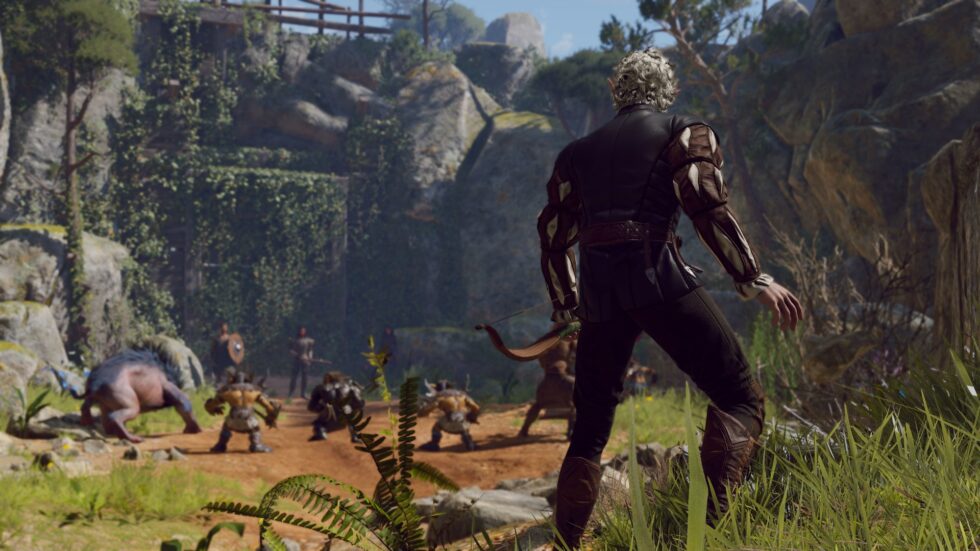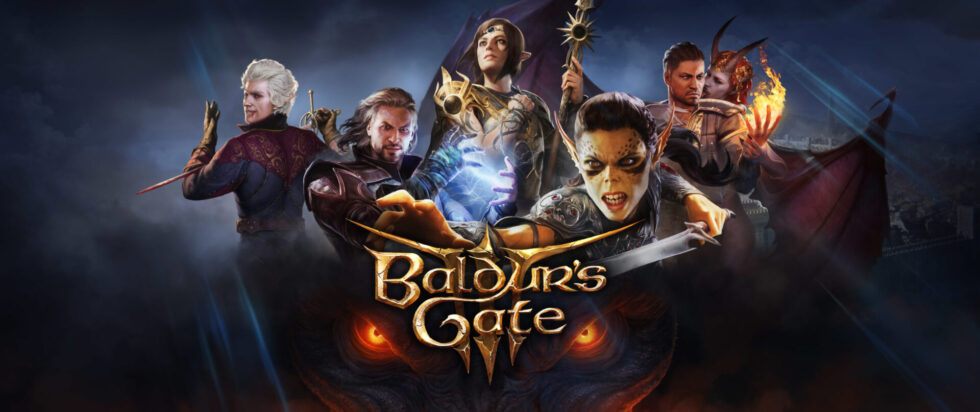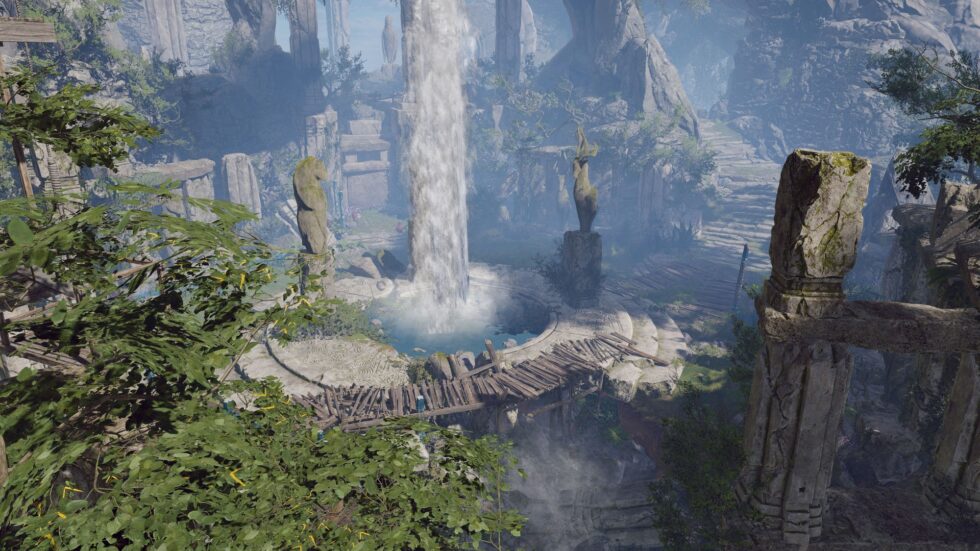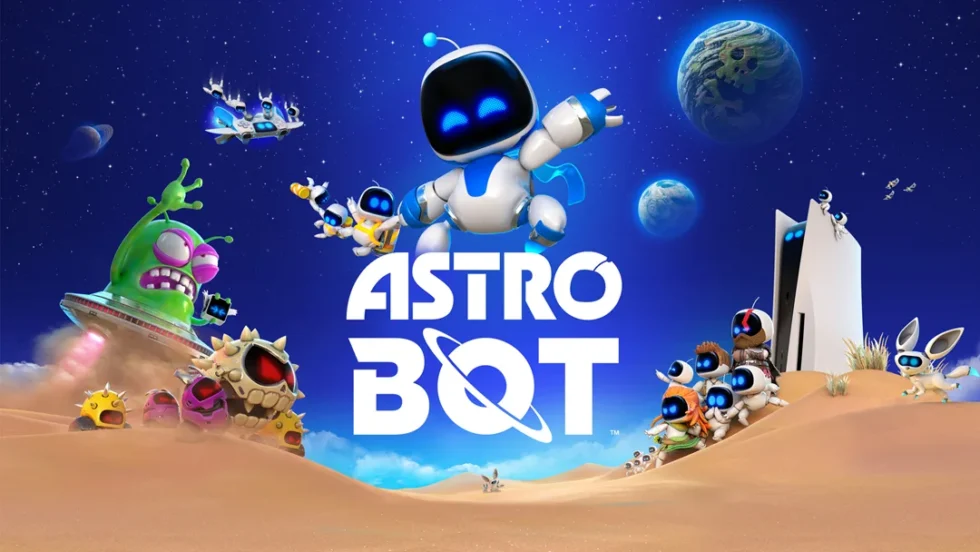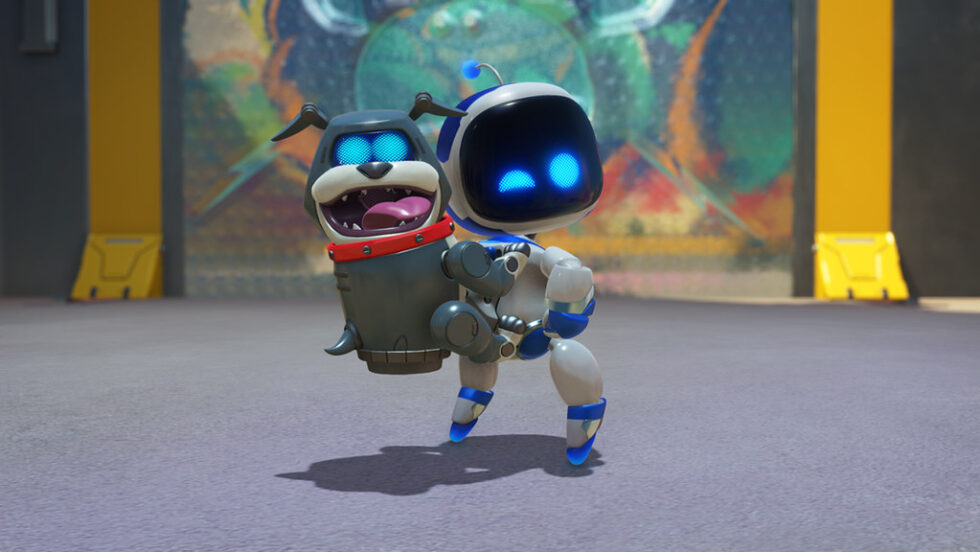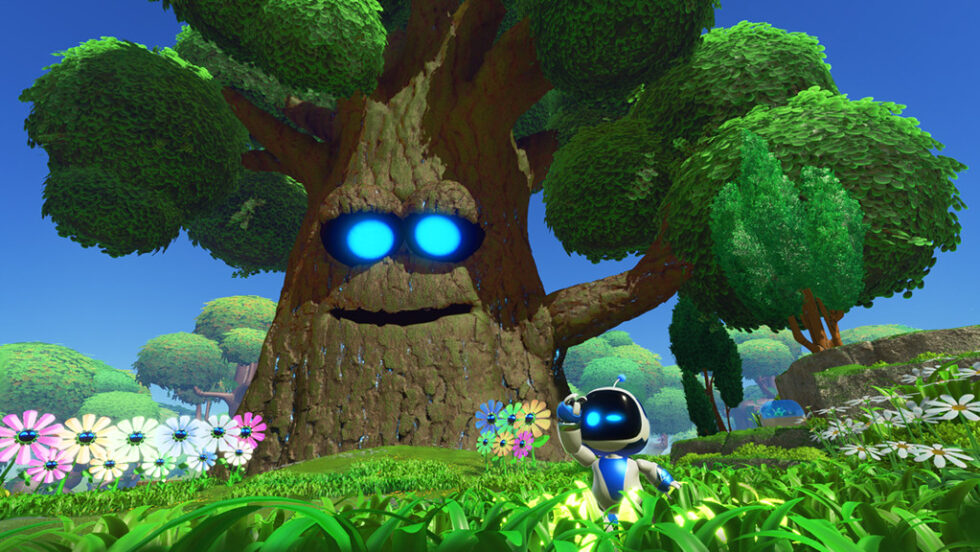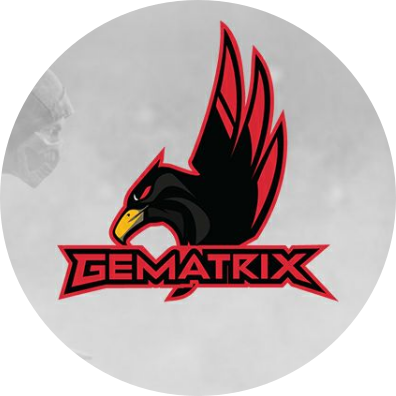THE VIDEO GAME CANON ACCORDING TO THE GAME AWARDS.
The medium of film or motion pictures has existed for just over 100 years now. 50 years in, they had already established a canon, and a set of values or expectations that creators and the audience had become accustomed to. A substantial contributing factor to the established canon of film was the implementation of the Academy of Motion Picture Arts and Sciences Awards, also known as the Oscars.
Video Games as a mass market medium have only existed for about 50 years, and unlike films the video-game canon has not yet been properly established by awards recognition, but mostly popularity and sales. This has led to some cult classics and hidden gems not getting the recognition they rightfully deserve
For one night, members of the Academy (which consisted exclusively of industry professionals) nominated, voted, and consequently celebrated the art-form which they helped create for that particular season. Films that may not have won by mere incidence of being nominated, have also been permanently embellished as tent-pole achievements in filmmaking, and are permanently etched into history as part of the ‘film canon’.
Video Games as a mass market medium have only existed for about 50 years, and unlike films the video-game canon has not yet been properly established by awards recognition, but mostly popularity and sales. This has led to some cult classics and hidden gems not getting the recognition they rightfully deserve. It is for this reason that I wanted to take a look at the past 10 years of The Game Awards winners to attempt to parse if there is any structure, or story that these wins and games can elaborate about gamers’ tastes over time, and where the industry is going.
2014: DRAGON AGE: INQUISITION
The very first recipient of The Game Awards Game of the Year award was Electronic Arts and Bioware’s much anticipated Role-Playing Game sequel to Dragon Age: Origins titled, Dragon Age: Inquisition. The development of this game was later revealed by renowned game journalist Jason Schreier to be a mess of crunch that only got through the finish thanks to something the development team colloquially referred to as “Bioware Magic.”
In spite of the rough development, the game turned out to be very well received by fans and critics alike, earning itself a respectable 85 rating on Metacritic, and eventually winning Game of the Year. 2014 was the beginning of the PlayStation 4 and Xbox One generation; this made it a relatively weak year for games. Gamers were looking for the next big AAA video game to usher them comfortably into the next generation and Dragon Age: Inquisition filled that void.
Narrative-based single-player Role Playing Games set the pace as the standard bearer and favourite for winning Game of the Year. Gamers and critics alike looked more fondly upon this subgenre with the next best competition being Middle-Earth: Shadow of Mordor; “A game that ushered in the first true unique mechanic of the generation in the Nemesis System”. Unfortunately, the Nemesis System would not be used again until the sequel to Shadow of Mordor was released due to the fact that it was patented.
2015: THE WITCHER 3: WILD HUNT
The Witcher 3 was a much-anticipated sequel to the primarily PC-based Role-Playing Game from Polish Developer and Publisher CD Projekt RED. The game gained notoriety and popularity due to the quality of its prequel, and the promise of a super polished open world AAA upcoming game called Cyberpunk 2077. The intense hype for the game was thankfully matched by critical reception (92 Metacritic) and sales.
2016: OVERWATCH
With the generation in full swing and the install base on pace to surpass the previous one, Blizzard released their first new IP in decades with the much-anticipated Hero Shooter, Overwatch. The prerelease marketing for Overwatch was nothing short of perfect with well-timed CG short films introducing the world and characters to a brand-new audience at the time. The films were so good it created a fanbase that was solely interested in the lore and characters, and never even touched the games.
Overwatch was the game that ushered in the era of the Live-Service Game, for better and for worse.
Impeccable character design, and a spatter of shorts well after the release of the game cemented the games popularity as an all-timer. It’s also important to note that Overwatch was a multiplayer-only team-based game. The likes of which hadn’t gripped the gaming community since the early Quake days. Overwatch was the game that ushered in the era of the Live-Service Game, for better and for worse.
Overwatch was a fully priced game and further monetised its popular characters by selling character skins and emotes via a loot-box system. Loot boxes were not invented by Overwatch, but were certainly popularised by them. This set a new standard for the industry. Sell AAA games at full price, and monetise further by selling loot boxes.
Overwatch was the first Multiplayer game to win Game of the Year, and would be the last of its ilk to receive this accolade, mostly due to a lack of fresh ideas in the Hero Shooter subgenre, and an eventual over-saturation that led to the demise of its sequel a few years later.
2017: THE LEGEND OF ZELDA: BREATH OF THE WILD
Nintendo teased its brand-new console, the Nintendo Switch as a hybrid console, that is, it would be both a handheld console and a traditional home-based one when docked. Paring this with the release of a brand-new 3D Zelda game at launch led to such overwhelming demand for both the Switch and the game that for a few weeks, they were sold out everywhere.
Breath of the Wild was the first foray for The Legend of Zelda into the Open-World subgenre. This was a significant shift, and a much needed shake up for the tried-and-tested 3D Zelda formula. The game went back to its open-ended exploration first roots. It felt more like a third-person immersive sim than a puzzle platformer. Its open-ended nature set a new standard for the industry that is still being followed to this day.
2018: GOD OF WAR
The ‘soft reboot’ of Kratos’ story was a great opportunity for gamers who had never tried the game to latch on. The revamped and reworked gameplay seemed to be aping the much more popularised structure of behind the shoulder 3rd Person Action-Adventure that had become a template for ‘awards bait’ video games.
The unique selling point this time around was the addition of Atreus, Kratos’ son as a companion that could assist, or straight-up take over gameplay at certain points, similar to The Last of Us Part, or Telltale’s The Walking Dead before it. The game’s focus on a more streamlined narrative featuring very few primary characters opened up the IP to a much wider audience and it paid off.
This win ushered in the era of the Sony 3rd Person Action-Adventure/RPG hybrid that would bring the publisher so much critical and commercial success in the PS4 generation; a formula that would not be as successfully copied by other publishers and studios for a variety of reasons, but mostly, the inability to match polish, scale and scope.
2019: SEKIRO: SHADOWS DIE TWICE
The first win for From Software Studios came at a time when the mass market popularity of the Souls-like subgenre reached breaking point. Souls games were no longer a niche; everybody was playing them now, and their quality especially with this entry and its predecessor, Bloodborne, was undeniable.
Souls games and its mechanics have been talked about and critiqued to hell and high water by many critics, reviewers and gamers everywhere including on this very website. Sekiro’s addition to the subgenre was a parry system that when mastered, made gamers feel like demi-gods. The gameplay innovations popularised by Sekiro would be infinitely copied and implemented by many games going forward, and even expanded upon by future From Software games.
2020: THE LAST OF US PART 2
Another entry in the Sony 3rd Person Action-Adventure/RPG hybrid game, though more Action set-piece than RPG. This win was a celebration of single-player narrative action games more than anything else; the beginning of the rejection of the Live Service model due to increased saturation. This win symbolised a shift in market trends.
2021: IT TAKES TWO
Josef Fares had become a recurring main character at the actual Award show presentation. A colourful and expressive game developer who sometimes felt like he over-promised. It Takes Two was a Co-Operative Narrative-based Puzzle Platformer that celebrated gameplay and game design. The game went through various gameplay mechanics and gameplay loops that it sometimes feels like no ideas were rejected in the brainstorming phase. The impeccable game direction is what makes this game coherent and it was rewarded for that.
2022: ELDEN RING
Much like The Legend of Zelda, From Software was seeking to expand and evolve their games by going open-world. Exactly like Breath of The Wild before it, they took lessons from their previous games, and expanded upon the open-ended exploration nature of its tried and trusted gameplay loop. From Software is currently the only studio to have two wins at The Game Awards, and then coming in a span of one decade goes to show exactly what subgenre of game is King of the era.
2023: BALDUR'S GATE 3
CRPG’s like Wasteland 2 and 3, Pillars of Eternity, and Disco Elysium had been gaining popularity over the past decade and all it took was a AAA-level polished sequel to a much-anticipated franchise in the Dungeons and Dragons universe to bring the genre to the forefront, and to the mass market.
Larian Studios, a Belgian independent studio with hundreds of employees, and a handful of studios worldwide managed to piggyback off of the success and mechanics of their previous title, Divinity: Original Sin 2, to make what many deem the next evolution in single-player narrative-based role-playing games. Multiple tangible consequences for both narrative and gameplay choices give the game almost infinite replayability.
This was also the first game to win that extensively used the Early Access system on Steam; a system that allowed for unfinished games to be sold and played by the audience. This gives the developers invaluable feedback and some cash to keep developing the title simultaneously.
2024: ASTRO BOT
The PlayStation 5 shipped with Astro’s Playroom as a pack-in game, similar to how the SEGA Genesis shipped with Sonic the Hedgehog. Astro’s Playroom is to this day the only game to fully utilise the hardware gimmicks of the PS5. Well, the only game until Astro Bot, a full priced AAA Platformer Family game released exclusively for the PlayStation 5.
The game pays homage to the various franchises and gameplay mechanics that have become iconic on the PlayStation platform. Easter eggs and secrets are the core of the game, but nostalgia is not the only thing the game relies on. The sheer quality of the platforming which has been quite accurately compared to the best 3D Mario games is what sold gamers and critics on Astro Bot.
Astro Bot, and It Takes Two are the only family games to win game of the year, with Astro Bot being firmly targeted at children.
CONCLUSION
If one were to introduce someone new to games by only playing the last 10 Game of the Year winners they would mostly experience single-player narrative games with role-playing elements tinged with Souls game mechanics, and open-world exploration.
One- or two-family Puzzle Platformers that emphasise a variety of gameplay and mechanics as well as the only Live Service game to have so much cross-cultural appeal that none gamers recognise its characters.
A distinct lack of 2D platformers, and smaller indie games goes to show how big AAA games are prioritised by awards voters. This coincides with the slow death of the AA game that had experimental mechanics and didn’t need always to surpass sales expectations.
Recent nominations show that the JRPG is making a return but without any wins, a brand new gamer would only experience Souls games, Open World RPGs, or CRPGs.
The only First-Person Shooter being a Live Service game means a gamer would not experience the narrative brilliance of single-player FPS action games.
Adventure games like The Walking Dead seem to have fallen out of favour in the past decade, an evolution of its mechanics can be seen in the single-player Sony 3rd person games though, so their DNA lives on.
All-in-all, one can deduce that a few trends can be derived from the past 10 years of the Game Awards winners; Souls Games, Open World RPGs and 3rd Person Action Adventure Games. I am looking forward to the next 10 years of gaming to attempt to track the trends and see what wins ultimately gets enshrined in the Canon of Video Game culture.
Read More Of Our Stuff
The Rise and Fall of Gameloft
The story of Gameloft, once a titan in the mobile gaming industry, is a fascinating reflection of the broader rise and fall—and subsequent resurgence—of mobile gaming as a whole.
2025, The Year The Average Gamer Upgrades
With Nvidia entering their 4th generation of ray tracing cards, and gamedev companies shoving excessively demanding requirements down our throats, is it time to finally get with the program and conform?
Best Media of 2024: Nerd|Otaku Writers’ Choice
From Arcane to Fallout, Black Myth Wukong to Marvel Rivals, The Substance to Anora; 2024, no doubt, has been a big year for film, TV, novels, video games, and music. We, the writers of Nerd|Otaku, had a long discussion on what our favorite media from this year was.

